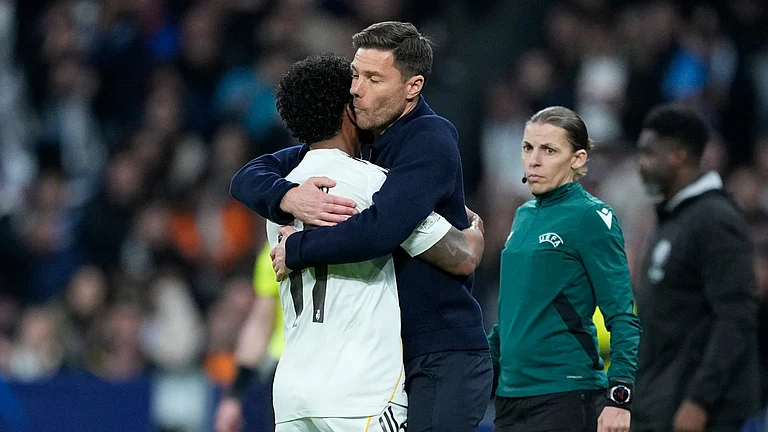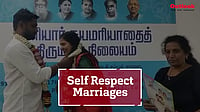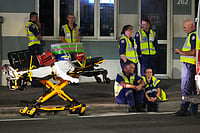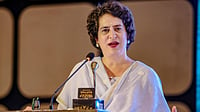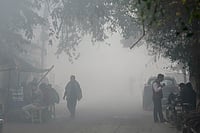Into The Open
- Lesbian `marriages’ have been widely reported across India
- Most such couples are from small towns, villages
- Usually they are from lower-income groups
- Most of them aren’t part of any gay movement
- Last month, a Brahmin woman of Muzaffarnagar, UP, declared she would marry a lower-caste girl
***
As Swapna rummages through a file, searching for a medical report and a prescription, her ‘husband’ Chandraleela neatly plaits her hair. They are at their house in Ambaripeta village in Andhra Pradesh’s Karimnagar district. After a hurried breakfast of idlis, they’re off to catch a bus to Karimnagar. It’s an important day for the couple: they have an appointment with a gynaecologist who has agreed to help Swapna bear a child through artificial insemination.
This lesbian couple has been living together for three years and is now longing for a child of their own. Chandraleela aka Chandu, 30, and Swapna, 24, wish to become a “complete family”—just like any other normal couple. “I can make myself look like a man, but from where am I going to get the ‘qualities’ of a man?” asks the tomboyish Chandu, a home guard posted at the Dharmaram police station. Colleagues and friends have taken to calling her ‘Chandu’ because of her masculine appearance and behaviour.
Swapna and Chandu say they have opted for artificial insemination as Swapna is very keen to bear a child. So obsessed are they about having their “own” child that they refused to consider adoption. “The child should be born from my womb,” says Swapna. She doesn’t think the bonding with an adopted child could be as strong.
As with normal couples, the anticipation of and preparation for a baby is also strengthening their own bond, one forged in controversy when they “married” in March 2006. The relationship drew flak but has endured and survived the cruelties that semi-rural societies so casually inflict on the different. But that’s all in the past. “The dust seems to have settled now, especially with the decriminalising of gay culture by the Delhi High Court,” says Swapna. “We can now even hope for much wider acceptance in society.”
The couple met in February 2006, when Swapna was arrested on the charge of having abetted a suicide. She was remanded in judicial custody at the Karimnagar jail, where Chandu happened to be posted in the ward for women. Swapna is still being tried in the case, but during the time in jail, she found her companion for life in Chandu. Swapna says what impressed her most about Chandu was her conduct and her caring attitude: she would often bring her fruits and other eatables. They married in a temple in Velgatoor, in Karimnagar district, when Swapna was released on bail.
Will Chandu—the dominating partner in the relationship—allow Swapna to work? She says, “I feel a wife must remain at home and take care of all the household work. And a male member should earn for the family.”
When Swapna started pining for a child, Chandu had first thought of sex change. She had gone to several doctors to enquire about sex-change procedures, believing such surgery could enable her to father a child. She dropped the idea when she realised it would only bring about superficial changes and not make her a “complete male”. However, Dr B. Padmaja, the gynaecologist Swapna is consulting, is confident that Swapna’s dream of becoming a mother—albeit through artificial insemination—will soon be fulfilled.









